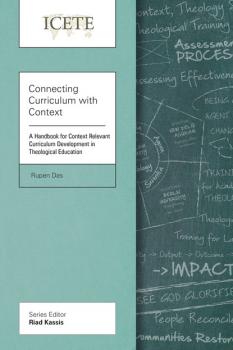ТОП просматриваемых книг сайта:
Rupen Das
Список книг автора Rupen DasАннотация
Today’s refugee crisis has engulfed public policy and politics in countries around the world, deeply dividing communities. With increased migration many fear terrorism, crime and a dilution of their perceived national identity, while others embrace it as an inevitable reality of the globalized world in which we live. But what does the Bible have to say about migration and displacement and how refugees, migrants, and the stateless should be treated?
Strangers in the Kingdom asks why God cares for the displaced, presenting biblical, theological, and missiological foundations for ministries to those who have been uprooted from their homes and all that is familiar. Rupen Das and Brent Hamoud apply their experience and expertise to provide timely answers that the Christian community is waiting to hear. Addressing the humanitarian and legal needs of the displaced is the starting point, but relief, repatriation, and resettlement programs need to help the stranger find a place to belong, a place to call home.
Strangers in the Kingdom asks why God cares for the displaced, presenting biblical, theological, and missiological foundations for ministries to those who have been uprooted from their homes and all that is familiar. Rupen Das and Brent Hamoud apply their experience and expertise to provide timely answers that the Christian community is waiting to hear. Addressing the humanitarian and legal needs of the displaced is the starting point, but relief, repatriation, and resettlement programs need to help the stranger find a place to belong, a place to call home.
Аннотация
Assessment of the impact of theological education has always been a challenge. In a pluralistic world where graduates are ministering in greatly varying contexts and cultures, theological education has to be context sensitive and relevant. It is no longer enough to ensure that students have mastered core theological concepts and truths, have biblical knowledge, and some basic ministry skills. The impact of a theological institution is measured by the effectiveness of their graduates in their specific ministry contexts. Therefore the theological curriculum has to be connected with the contexts of the graduates. Theological institutions need to be clear as to what they hope to accomplish and this will determine the model of theological training that they use. This book explores various models of theological education, as well as identifying steps in the logical sequence of connecting curriculum with context.
Информация о книге
Автор произведения Rupen Das
Жанр Прочая образовательная литература
Серия ICETE Series


